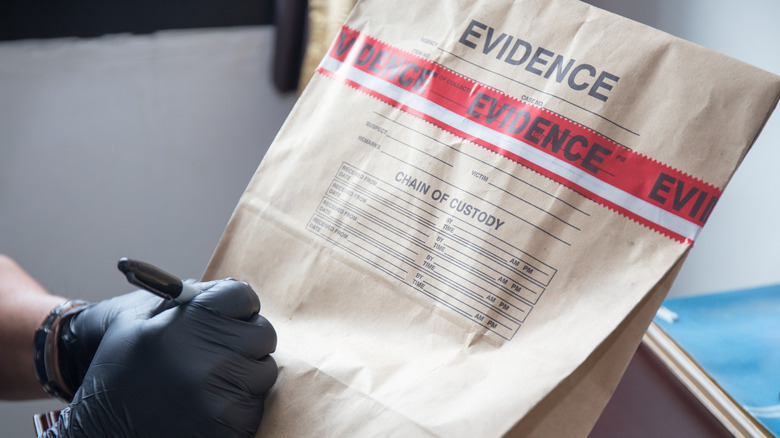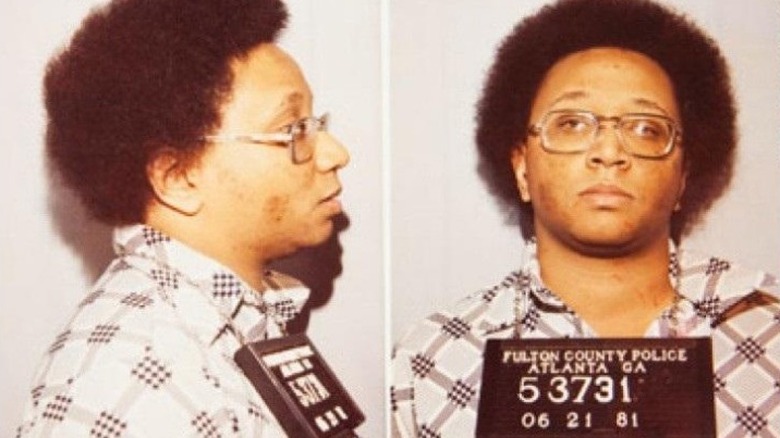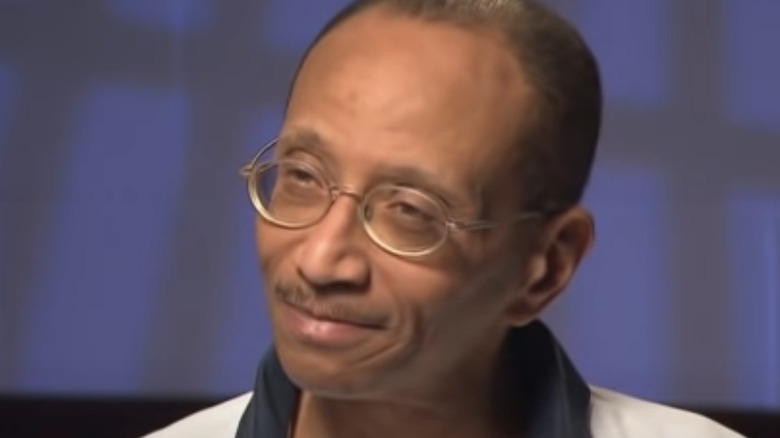Why Some Believe The Alleged Atlanta Child Murderer, Wayne Williams, Is Innocent
In the late 1970s, Atlanta, Georgia saw itself as the future of post-Civil Rights American race relations, or as some in the city put it, a "city too busy to hate," according to The Daily Beast. Around that same time, a string of 29 Black children were killed in Atlanta, crimes collectively known today as the Atlanta Missing and Murdered Children's cases. The fact that Black children were in such danger in Atlanta threatened the city's progressive reputation, and several of those murders and missing persons cases remain unsolved today.
In 1982, Atlanta resident Wayne Williams, a Black man, was already convicted of killing two men. Based on controversial evidence, Williams was assumed guilty of many of those children's murders, though the case never went to trial. Williams, already in prison, never faced any charges. All the same, nearly two dozen of the Atlanta Missing and Murder Children's cases were closed (via History). Was Williams really guilty of killing those children, or were those Atlanta Missing and Murdered Children's cases pinned on him, all part of an even more sinister cover-up?
The case against Williams
The primary evidence linking Williams to the Atlanta child murder spree was the same piece of evidence that lead authorities to believe the murders were connected: The same type of fiber was found on several of the children's bodies linked to a Georgia carpet company that was also found int Williams home, according to History. Those fibers, as well as further fiber and hair evidence gathered from Williams' car and dog provided adequate proof that Williams had committed the crimes, according to the authorities.
The Atlanta child murders also stopped once Williams was arrested in connection to those two adult killings. With Williams in jail and with most of the previously unsolved Atlanta Missing and Murdered Children's cases now closed, Marvin Arrington, who was Atlanta city council president at that time said (via The Atlanta Journal-Constitution) the murder spree "has been resolved ... Now we can get back to being the No.1 city in the world." Some parents and family members of missing or killed children were unconvinced.
Was it the Ku Klux Klan instead?
One unconfirmed theory as to who may have actually killed those children in Atlanta in the late 1970s were Ku Klu Klux Klan members hoping to start a race war, as History goes on to explain. In that era, there were also reportedly a number of Atlanta enforcement officials who were Klan members, as The Daily Beast explains. Since the bulk of the unsolved child murder were closed, evidence has also emerged that Atlanta city leadership prioritized quickly resolving these cases to minimize negative publicity.
What's more, the fiber and hair evidence that linked Williams to the crime is now widely reported as "junk science" by both The Daily Beast and The Atlanta Journal-Constitution. Georgia law enforcement at the time also considered a Klan link in their investigation, information kept from Williams' defense attorneys. Throughout the process, Williams maintained his innocence. In the decades since, some Atlanta child murder and missing persons cases not linked to Williams were reopened to explore the Klan link. Those investigations went nowhere and the cases were once again closed.
DNA technology may now provide answers
In October 2022, WXIA-TV 11Alive.com reported that DNA evidence gathered from Williams and from the crime scene in the Atlanta children's murder was retested to finally once and for all prove or disprove Williams' link to the crime. As of that report, no results of those DNA tests were available. At that time, Joseph Drolet a former prosecutor who tried Williams for the young adult murders for which he was convicted said in his view, Williams is guilty. "Most people didn't sit through a 9-week trial. They haven't seen all of the evidence, they don't understand the fiber evidence and the strength of it," Drolet said. As of 11Alive.com's report, defense Attorney Janis Mann had only just taken up the Williams case.
Via 11Alive.com, Mann said in 1982, her client received trial by media "and by social and political pressure," not by evidence, she said, which she called a travesty. Mann went on, "[Williams'] case is a perfect example of what can and does go wrong in the court system when it is driven not by scientific evidence, and not by facts, but by public perception and misunderstanding. The case against Williams was bolstered in 2019 when Derwin Davis who was 14 when the Atlanta Children's Murders took place came forward. Davis claimed as a teenager, he escaped Williams who had allegedly tried to abuse him, based on further reporting from The Atlanta Journal-Constitution.



